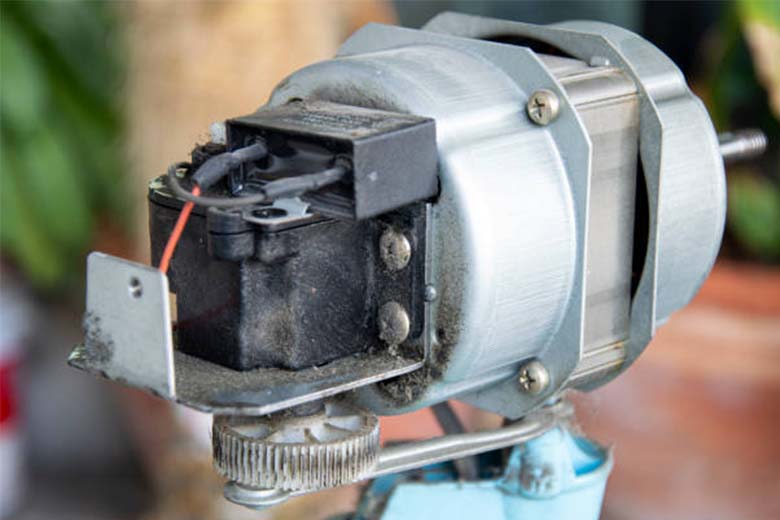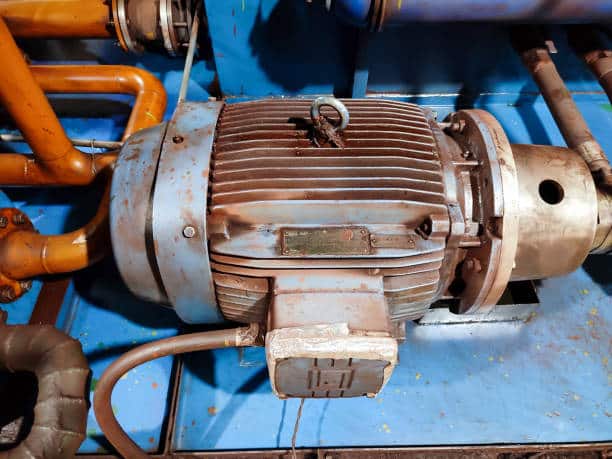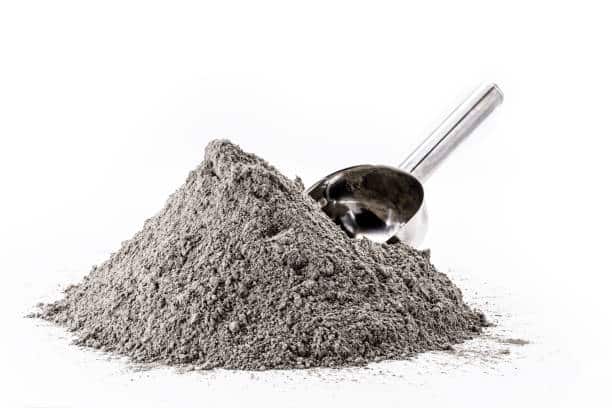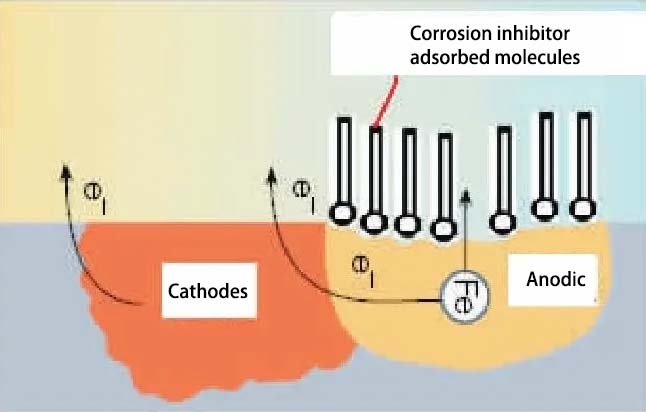Corrosion Inhibitors in Pumps

Corrosion is a common problem faced by metals that not only affects the life of equipment, but can also have a serious impact on infrastructure. To combat this problem, corrosion inhibitors have become an important solution.
Significance of corrosion inhibition
Corrosion not only reduces the performance of equipment, it can also lead to equipment damage and even safety risks. The use of corrosion inhibitors can go a long way to slowing or avoiding these problems and is vital for the maintenance of industrial equipment and infrastructure.

What is a corrosion inhibitor?
A corrosion inhibitor is a chemical that protects metal surfaces from corrosion. It extends the life of metal equipment and structures by altering the electrochemical properties of the metal surface, forming a protective film or impeding the corrosion process.
Corrosion inhibitors can be in liquid, solid, or gaseous form, depending on their chemical nature, use, and specific application scenarios. Some common corrosion inhibitor forms include:
- Liquid corrosion inhibitors: Most corrosion inhibitors are in liquid form and can be dissolved in water or other liquid media and easily added to liquid delivery systems.
- Solid corrosion inhibitors: Some corrosion inhibitors come in solid form, either as granules, tablets or powders. They may need to be dissolved or suspended in a liquid before they can be used.

- Gaseous corrosion inhibitors: Some corrosion inhibitors exist in gaseous form, such as volatile corrosion inhibitors. These compounds can form a protective gas layer in a closed environment by volatilizing into a gaseous state.
Different forms of corrosion inhibitors are suitable for different application scenarios. Liquid corrosion inhibitors are suitable for systems where they are added directly to the liquid medium, while solid corrosion inhibitors may need to be dissolved or suspended before they can be used. Gaseous corrosion inhibitors, on the other hand, release gases in a closed environment to form a protective layer. Choosing the right form depends on the liquid medium, the nature of the corrosion inhibitor, the application requirements, and the ultimate corrosion protection goal.
Corrosion inhibitors working principle
- Formation of a protective film: corrosion inhibitors form a protective film on the surface of the metal, preventing further erosion of the metal by liquid media. This film can block oxygen, water or other chemicals that cause corrosion.
- Change the electrochemical properties: corrosion inhibitors can change the potential or electrochemical reaction of the metal surface, the metal surface will remain in a state less susceptible to corrosion. This can be achieved by making the metal surface a cathode (cathodic corrosion inhibitor) or inhibiting anodic reactions.

- Adsorption and reaction: Corrosion inhibitor molecules can be adsorbed on the metal surface to form a protective adsorption layer or chemical reaction with the metal surface to prevent further corrosion.
- Ion exchange: in liquid media, corrosion inhibitors can react with the ions in the liquid or adsorption, to prevent the corrosive effect of these ions on the metal surface.
Is there any corrosion in the pump?
Under certain circumstances, the metal parts of the pump may be affected by corrosion. This situation depends mainly on the chemical composition of the liquid handled by the pump, the temperature, the flow rate and the material of the pump.
Many liquid media are corrosive, especially if the liquid contains corrosive substances, acids or alkalis, salts or other chemicals that may have a corrosive effect on the metal parts inside the pump. In addition, factors such as high temperatures, high pressures and excessive fluid velocities may increase the risk of metal corrosion.
Can corrosion inhibitors be used on this?
Corrosion inhibitors can be applied to slow or inhibit the corrosion of metal parts inside a pump. By adding a corrosion inhibitor to a liquid medium, it forms a protective film on the metal surface that reduces or prevents corrosion from occurring. This approach helps to extend the life of the pump and improve its performance and reliability. Choosing the right corrosion inhibitor takes into account factors such as liquid composition, environmental conditions and pump material.
Which type of corrosion inhibitor is suitable for pumps?
The choice of corrosion inhibitor depends on the composition of the liquid medium, the environmental conditions and the metal material inside the pump. Some common types of corrosion inhibitors are suitable for pump protection:
Organic corrosion inhibitors
These corrosion inhibitors are usually organic compounds that form a protective film with the metal surface to prevent corrosion. They are suitable for a wide range of liquid media and environments.
Inorganic corrosion inhibitors
Often use inorganic salt compounds as the main ingredient, can fight against different kinds of corrosion, for some specific liquid environment has a better effect.
Volatile corrosion inhibitors (VCI)
These compounds release gases in a volatile manner to form a protective gas layer in a closed environment, and are suitable for preventing corrosion caused by air contact on metal surfaces.
Compound corrosion inhibitors
Combine multiple chemicals to provide more comprehensive corrosion protection. These complex corrosion inhibitors can be applied to different liquid media and environmental conditions.
What types of pumps are these corrosion inhibitors suitable for?
Different types of pumps may be affected by different types of corrosion in different working environments and liquid media. Selection of the appropriate corrosion inhibitor should be based on the type of pump, the conditions of use and the characteristics of the liquid medium for comprehensive consideration. The following are some common types of pumps and the types of corrosion inhibitors that may be applicable:
Centrifugal pumps and piston pumps(HJ-Z Mechanical Dosing Pump): usually used to transport water or liquids, you can consider the use of general organic corrosion inhibitors, inorganic corrosion inhibitors or composite corrosion inhibitors.
Chemical injection pumps(H Solenoid Dosing Pump): pumps used to inject chemicals, may require the use of special corrosion inhibitors, adapted to the chemical composition of the agent.
Submersible pumps: used for drainage and sewage treatment, may require more corrosion resistant corrosion inhibitors, such as inorganic corrosion inhibitors.
Vacuum pumps: affected by gas composition and vapors, may require volatile corrosion inhibitors or specially formulated corrosion inhibitors.
Magnetic pumps and agitator pumps: Due to the special structure, it may be necessary to select the appropriate corrosion inhibitor according to the characteristics of the liquid medium.
When selecting a corrosion inhibitor, it is necessary to consider the working environment of the pump, the chemical composition of the liquid medium, temperature, pressure and other factors, as well as the material of the pump. The best choice is to consult us for advice appropriate to the specific pump type and conditions of use.
Different types of corrosion inhibitors
In addition to organic, inorganic, volatile and composite corrosion inhibitors, there are a number of other types of corrosion inhibitors:
- Polyol corrosion inhibitors: such as ethylene glycol, propylene glycol, etc., commonly used to prevent corrosion of metals in water cooling systems.
- phosphate corrosion inhibitors: including phosphates, phosphites, etc., the metal surface has a certain corrosion inhibition effect.
- Organic acid salt corrosion inhibitors: such as citrate, acetate, etc., often used to reduce metal corrosion in the water system.
- Sulfate corrosion inhibitors: such as sulfates and sulfites, can play a certain degree of inhibition of the corrosion of iron and steel.
Equipment for delivering corrosion inhibitors
- Piping systems: pipeline networks used to transport liquids or gases, these pipes may carry media containing corrosion inhibitors to protect metal surfaces during transportation.
- Pumps and spraying devices: when transporting liquids, dosing pumps can be used to transport media containing corrosion inhibitors from one place to another. Spraying devices can spray corrosion inhibitors to cover the surfaces to be protected.
- Tanks and containers: Used to store liquid media containing corrosion inhibitors and transport them to specific equipment or systems when needed.
- Injection systems and mixing equipment: used to add corrosion inhibitors to a specific liquid medium to ensure that the liquid delivery process to protect metal surfaces.
- Chemical treatment equipment: including a variety of equipment for the treatment of liquid media, corrosion inhibitors can be added to prevent metal corrosion, such as water treatment equipment, oil field treatment equipment.
These devices are widely used in a variety of fields including industrial, chemical, oil and gas, and water treatment to protect equipment and piping systems from corrosion. Choosing the right equipment for delivering corrosion inhibitors takes into account the liquid medium, the delivery requirements, and the equipment and piping materials to be protected.
Summary
Corrosion inhibitors play an integral role in corrosion control. Their versatility and wide range of applications have made them an important tool in the protection of metal equipment in various industries, providing reliable support for industrial development.
HAOSH specializes in the supply and development of diaphragm metering pumps, pump accessories, dosing systems and mixers, providing you with a full range of precise pharmaceutical delivery solutions.
